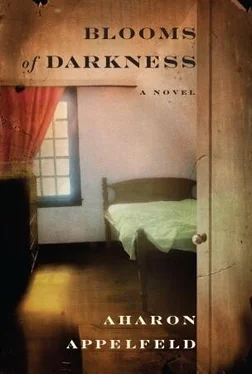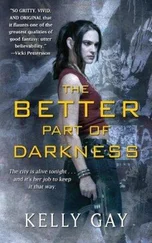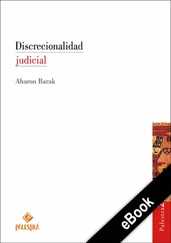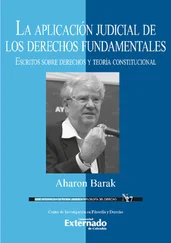Hugo sits on a bench on Acacia Avenue, the most modest of the city’s avenues. He has a good view of the city, from the poplars alongside the river to the stores and coffeehouses. He used to sit here with Anna. Once he sat here with Franz, who tried to prove to him, with long and complex words, that science was advancing by leaps and bounds, and that everything that seemed stable and well grounded today would be thought of as childish in ten years. Franz was a genius. Conversation with him was always tiring and dizzying.
Forgotten images appear before him, among them images from school. Not everything was enjoyable there. After school, bullies used to pick on the few Jews who attended, and some of the teachers embarrassed the Jewish pupils who didn’t come up to Anna’s or Franz’s level. But most days things proceeded without disturbance. Hugo is sorry that the war cut him off from his parents and from school; now he would have to start everything all over again. He stands up with the intention of going to the school, but the impulse that gets him up also keeps him in his place. He is afraid to advance, afraid that things will appear that he hadn’t imagined.
Hugo overcomes his apprehension and sets off. On Acacia Avenue stands the tavern where Uncle Sigmund used to spend days and nights. Sometimes, as he walked by, Hugo would see him arguing with someone or sunk in thought. Hugo would stand there, hoping Sigmund would notice him. That never happened. Near the bar is a cheap café where Frieda always used to sit. He would meet her there occasionally. Unlike Uncle Sigmund, she would notice him promptly, hug and kiss him, and tell him that she was his mother’s first cousin. She intended to visit the family, she would say, even if she wasn’t invited.
His feet move slowly, as though unsure of their direction. Everything is familiar to him and has hardly changed. Here and there a tree has been uprooted and a sapling has been planted in its place. Some of the stores are open and some are shuttered. Near the tavern where Uncle Sigmund used to sit, there had been a dry goods store owned by a religious Jew. His mother sometimes went in to buy mill ends for her needy people. It was a gloomy kingdom, full of tunnels and many shelves of cloth. Little children with earlocks and ritual fringes raced around the aisles. The owner of the shop, a pleasant man, adorned with earlocks and a beard, would serve the customers patiently and spice his words with proverbs and jokes, all in German mixed with Yiddish, which his mother understood well. Hugo, who had been raised on the purity of the German language, found it hard to understand. Now he envisions the interior of the shop, as though it were illuminated, even though the shop itself is shuttered.
In Uncle Sigmund’s tavern people sit as always. The proprietor, whom Hugo recognizes immediately, is standing in the middle of the room and giving a speech full of self-importance, and everyone laughs. How strange, Hugo says to himself, everything here is unchanged, only Uncle Sigmund is missing.
He puts the suitcase and the knapsack down on the ground. Momentarily freed of his burden, Hugo does notice some changes: the homes of the Jews who had lived above the shops have been taken by Ukrainians. At the windows and on the balconies stand women and children, chatting and laughing. A different wind blows in the air. Hugo tries to identify it but doesn’t succeed.
When he would walk along these streets with his mother, people greeted her, blessed her, and sometimes asked her for advice about some medical issue. In that respect, Hugo was more like his father. He wasn’t involved in school matters, and, like his father, he preferred being by himself.
Now he wanders in the city of his birth like a person who has returned to it after many years. No one recognizes him, and no one greets him upon his return. Cold surrounds him on every side and makes him shiver. He grips the suitcase and the knapsack and resumes walking.
The school stands where it always has been. Classes aren’t being held in it, but the main entrance is open, and near the broad stairway stands, as always, Big Ivan, the all-powerful janitor of the school.
“Hello, Mr. Ivan.” Hugo addresses him as everyone always did.
“Who are you?” Ivan fixes him with his gaze.
“My name is Hugo Mansfeld. Don’t you remember me?”
“I see that the Jews are coming back,” he says. It’s hard to know what he means by that.
“I’m going home to see whether my parents have returned. When does school start?”
“I’m the janitor, not the government. The government announces the opening of the school.”
“I’m glad to see you,” says Hugo, and indeed he is glad to find a familiar soul.
The janitor smiles and says, “Rumors circulated here that the Jews had been killed. False rumors, it turns out. Where were you?”
“I was hiding.”
“I’m glad.”
Ivan’s wife appears in the entrance, and he quickly announces to her, “The Jews are coming back.”
“Who said so?”
“Here’s Hugo. Don’t you remember him? He really got taller.”
It’s strange to see the school in its silence. This is how the building looked when he returned from summer vacation, but then he had returned thirsty for his friends and his city. Now he fears every corner.
Hugo continues on. In this part of the city he can walk with his eyes closed. The familiar sight of Ivan next to the stairs instills in him the feeling that the city hasn’t changed. If Mr. Ivan is standing next to the stairs, that means that school will open soon.
The sight of the pharmacy changes everything. The elegant building, which had always been well maintained, has become a grocery store. Inside, the tall and gleaming cabinets, the marble counter, the vases of flowers — all have been uprooted. At the entrance stand crates of potatoes, red cabbage, garlic, and onions. The smell of smoked fish and rotten cabbage hangs in the air.
The pharmacy was one of Hugo’s favorite places. His parents felt complete fulfillment there. Their love flourished. Some customers would say, “Hugo is like his mother,” and others would put their hands on their hearts and say, “Hugo is a perfect copy of his father.” Only now, standing before the ruins, does he absorb what has happened: what was will never return.
Now his step is heavier, more like a shuffle. Hugo remembers that sometimes his mother would return home early to prepare parcels for the needy. Hugo, already home from school, would see her approaching from a distance, dressed in a flowered dress, more like a girl than like his mother.
Suddenly, enchanted pieces of his childhood come back to him, as vividly as when he first experienced them. Whenever his mother saw him from a distance, she would call out his name in excitement, as though he had been revealed to her in a vision.
Hugo’s mother also knew how to be affected by things that didn’t immediately strike the eye. His father used to say, “You can learn how to be moved by Julia.” His mother’s response came promptly. “Make no mistake,” she would say, “in Hans’s eyes, being moved isn’t regarded as a praiseworthy trait.”
“You’re wrong, my dear.”
Hugo’s feet bring him home.
The house stands where it always was. On the pleasant, broad balcony that looked out onto the city hangs blue laundry. The windows on the side are bare, and people can be seen inside. The big chandelier in the living room still hangs from the ceiling. For a long time Hugo stands there and looks, and what he had felt upon arriving at the city center now hits him with full force: the soul has fled from this precious place.
Evening falls and darkens the sights. Hugo wants to go back to the town square that he left that morning. He takes a shortcut through a Ukrainian neighborhood. There’s no electricity, and the houses are lit by big kerosene lamps. People sit at tables and eat. The tranquility of nightfall descends upon the street and the houses. That’s how it always was there, Hugo recalls. And it’s still the same.
Читать дальше












